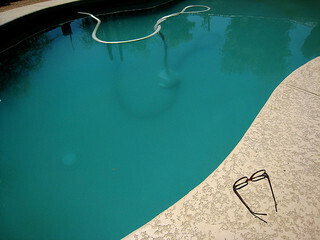No one wants to swim in a pool where the water isn’t clean and clear. Your filter is crucial for keeping your pool looking and feeling great. However, it’s not always as easy as you may think to determine when the filter should be cleaned or replaced. If you have trouble determining when to clean or replace your filter or are new to pool ownership, let us offer you a quick filter replacement primer.
Check the Cartridges
Your pool filter’s cartridges are usually the first sign it’s time to change or replace the filter. They hold several small clues, such as broken bands and frayed fabric. Check for broken bands first – if  you see them, it’s likely the cartridge is under too much pressure. Flattened pleats are another big sign of this. Never cut cartridge bands to ease the burden of pool cleaning. You’ll compromise your pool’s surface area and give dirty water more opportunities to flow into the pool.
you see them, it’s likely the cartridge is under too much pressure. Flattened pleats are another big sign of this. Never cut cartridge bands to ease the burden of pool cleaning. You’ll compromise your pool’s surface area and give dirty water more opportunities to flow into the pool.
Mind the Flow
When installing a pool, read your filter’s pressure gauge and record the resting pressure. The pressure inside the pool should never go above 10-12 psi higher than the original reading. If it does, the pool’s water won’t flow correctly and dirt and debris will build up. If the flow still doesn’t change after you’ve cleaned the filter, it’s time to replace the cartridges. If that doesn’t improve flow, consider replacing the entire filter.
Look at the Water
Your pool’s water should always be clear and have at least some sparkle. If the water is consistently murky and dull, check the filter to ensure it’s running properly. If it seems to be, but the water is still murky, it’s time to replace the filter. In addition, keep track of how often you’re running your filter. Your pool should not require constant filter runs, so replace the filter if you’re running it several times a week or multiple times per day.
Watch for Clogs
Pool filters clog periodically, often during the beginning of swim season when the pool has recently opened. However, too many clogs put you at risk of swimming in murky, dirty water. Constant clogging may be a sign of needed filter repairs or replacement.
